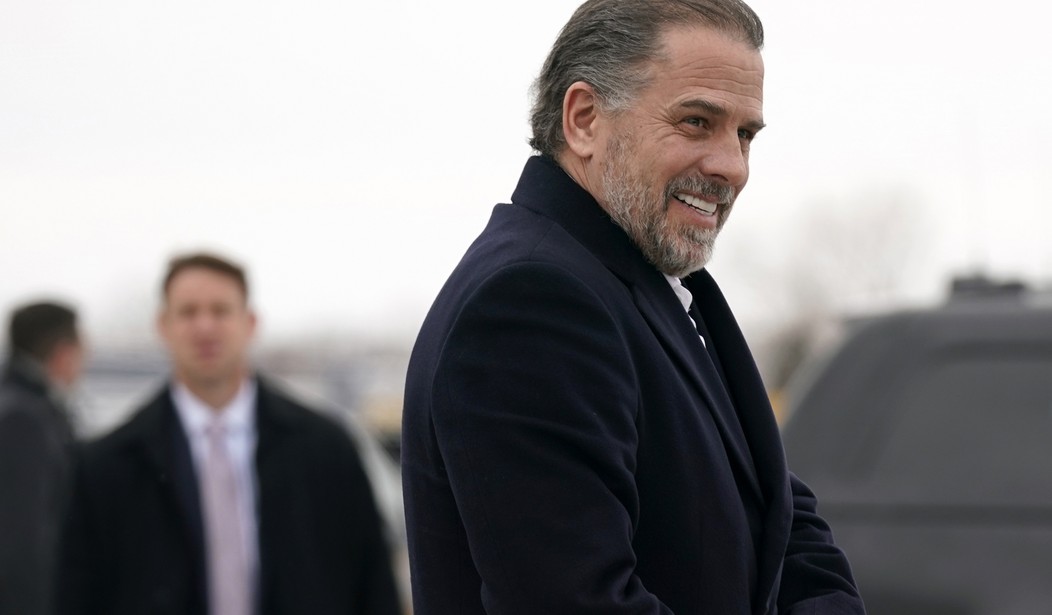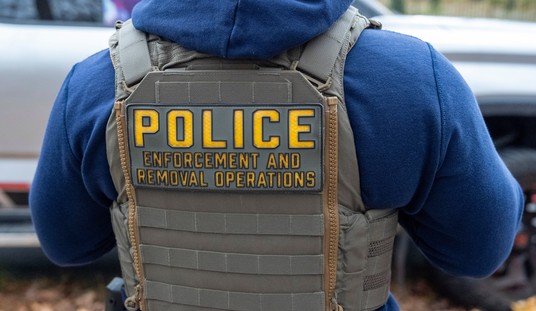I’m sticking with my prediction that Hunter Biden will not face trial over his possession and purchase of a firearm while he’s admitted to using crack cocaine on a regular basis, with a plea deal acceptable to the federal judge overseeing his case the most likely resolution to his legal woes. There’s a larger question however, about whether the law in question should even be on the books to begin with.
Reason columnist Jacob Sullum says “no”.
Form 4473 warns that “the use or possession of marijuana remains unlawful under Federal law regardless of whether it has been legalized or decriminalized for medicinal or recreational purposes in the state where you reside.” In other words, people who use marijuana in compliance with state law are still committing federal felonies, punishable by the same potential penalties that Biden faces, if they buy or possess firearms.
Biden’s behavior—which according to Politico triggered “a bizarre incident” in which his wife took his gun and “threw it in a trash can behind a grocery store, only to return later to find it gone”—may have been more careless than that of the average gun-owning marijuana user. But his crime does not hinge on any specific thing he did that injured or endangered others; its essence was exercising Second Amendment rights that Congress had arbitrarily decided he did not deserve, based purely on his choice of recreational intoxicants. That should not be any sort of crime, let alone one that can send someone to prison. The fact that President Joe Biden stubbornly defends a policy that could put his own son behind bars should not blind us to the injustice that would entail.
I’m with Sullum on this one, which I doubt will come as a surprise to anyone reading this. I’d be happy to see 18 USC 922(g)(3) get tossed out by the courts; not because I’m rooting for Hunter to avoid prison, but because the law in question is overly broad and unconstitutional based on the history, text, and tradition test laid out by the Supreme Court in Bruen. As a federal judge ruled earlier this year in tossing out similar charges filed against an Oklahoma man caught in possession of both marijuana and a firearm, there are plenty of longstanding statutes that prohibit using a gun while intoxicated, but the DOJ was unable to provide evidence of any statute from the relevant historical period that banned possession of a firearm for anyone who uses intoxicants, legal or otherwise.
While the Justice Department could find at least seven colonial, state, and territorial laws between 1655 and 1899 that it claims “categorically prohibited” intoxicated individuals from possessing firearms, Wyrick pointed out that each one of those statues merely prohibited possessing a gun while someone was actively intoxicated, not possessing both firearms and alcohol. The judge further noted that each of the laws cited by DOJ also applied to possessing a firearm in a public place, not a home or private property.
Quoting from U.S. District Judge Patrick Wyrick’s decision:
Where the seven laws the United States identifies took a scalpel to the right of armed self-defense—narrowly carving out exceptions but leaving most of the right in place—§ 922(g)(3) takes a sledgehammer to the right. Recall that § 922(g)(3) imposes the most severe burden possible: a total prohibition on possessing any firearm, in any place, for any use, in any circumstance—regardless of whether the person is actually intoxicated or under the influence of a controlled substance. It is a complete deprivation of the core right to possess a firearm for self-defense, turning entirely on the fact that an individual is a user of marijuana. Section 922(g)(3)’s “burden on the right of armed self-defense” is thus not “comparable” to the seven historical intoxication laws.
According to the DOJ (at least when they’re not actively trying to cut the president’s son a break), any violation of any law on the books renders your right to keep and bear arms moot, even smoking a joint in a state where cannabis has been decriminalized. Wyrick argued that there’s no limiting principle whatsoever to the DOJ’s position.
Imagine a world where the State of New York, to end-run the adverse judgment it received in Bruen, could make mowing one’s lawn a felony so that it could then strip all its newly deemed “felons” of their right to possess a firearm. The label “felony” is simply “too easy for legislatures and prosecutors to manipulate.”
Remarkably, when presented with this lawn-mowing hypothetical argument, and asked if such an approach would be consistent with the Second Amendment, the United States said “yes.” So, in the federal government’s view, a state or the federal government could deem anything at all a felony and then strip those convicted of that felony—no matter how innocuous the conduct—of their fundamental right to possess a firearm. Why? Because courts must defer to a legislature’s judgments about what is and is not a felony, says the United States. It’s as if Bruen’s command regarding the inappropriateness of such deference to legislative judgments has been lost in translation.
In a sense, one must applaud the United States for its steadfast commitment to its legal position. But “giv[ing] legislatures unreviewable power to manipulate the Second Amendment by choosing a label” is inconsistent with the entire point of constitutionalizing a fundamental right in the first place: to restrain a legislature’s ability to infringe that right through legislation. What would remain of the Second Amendment if the Court were to accept the United States’ view that a legislature could prohibit the exercise of the right it protects simply by declaring anything or everything a felony? Nothing. Maybe that is what the federal government desires, but it is hardly what the Constitution requires.
So yes, § 922(g)(3) is bad law, and the defense of the statute provided by Biden’s Justice Department is even worse. I would have no problem whatsoever with Merrick Garland announcing that the DOJ will no longer prosecute these offenses, and I’d cheer on a congressional repeal of the statute. What bothers me (and I suspect a lot of other gun owners as well) is the two-tiered system of justice that we’re witnessing. While charges based on violations of § 922(g)(3) may be rare, they’re not unheard of, and the DOJ has requested prison time even in cases where a violation of the statute is the only offense. In Biden’s case, Sullum admits that federal sentencing guidelines would suggest a prison sentence of 10 to 16 months behind bars, but U.S. Attorney David Weiss has apparently bent over backwards to keep Biden out of the federal prison system. That is not the case when it comes to other defendants, and you shouldn’t have to be related to the current occupant of the White House to get that kind of “justice.”









Join the conversation as a VIP Member